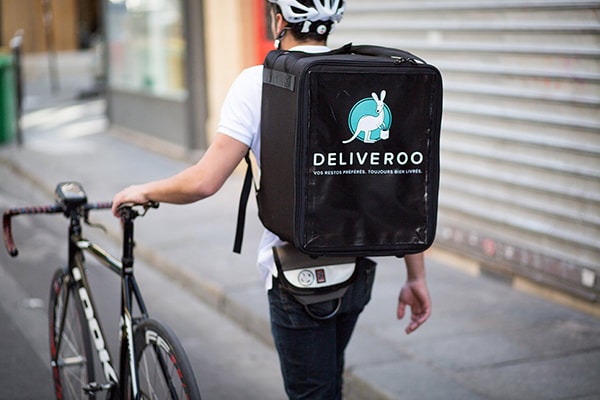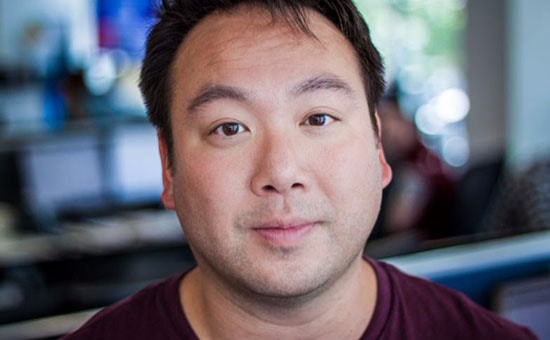 Deliveroo, an online takeaway ordering system, was started and developed during Shu’s time at Wharton. It first saw the light of day during the course “MGMT 806: Venture Implementation”, taught by Patrick Fitzgerald, lecturer at the Wharton School and Vice President of Entrepreneurship & Innovation at the Children’s Hospital of Philadelphia.
Deliveroo, an online takeaway ordering system, was started and developed during Shu’s time at Wharton. It first saw the light of day during the course “MGMT 806: Venture Implementation”, taught by Patrick Fitzgerald, lecturer at the Wharton School and Vice President of Entrepreneurship & Innovation at the Children’s Hospital of Philadelphia.
The course provides MBA and other Penn students with the opportunity to work closely with a faculty member on developing their venture concepts while also receiving academic credit. According to Fitzgerald his course “is industry agnostic, but specifically designed for students who are likely to enter the entrepreneurial arena”, he said during an interview for Wharton’s Entrepreneurship website.
During his course Will Shu used 806 to help vet the concept for Deliveroo. He put together a roadmap to test his theory that Deliveroo could be a reality upon graduation and he was able to pitch his idea to venture capitalists, angel investors, and fellow students, Fitzgerald explained.
MBA Channel got in touch with Penn Wharton Entrepreneurship and spoke to Managing Director Clare Leinweber (photo).
 Is the importance of entrepreneurship rising within your university – are there more students interested in founding their own company?
Is the importance of entrepreneurship rising within your university – are there more students interested in founding their own company?
The interest in entrepreneurship and innovation is continuing strong at Penn. Many students are interested in founding their own companies and applications for our programmes and competitions focused on this area remain strong, with the quality of those applications steadily rising. In our signature programmes such as the Venture Initiation Programme, Startup Challenge, and Summer Venture Award, we consistently see students at Wharton and from across the University of Pennsylvania committed to pursuing the development of their venture concepts. And we have had some notable successes for example Warby Parker, Deliveroo, CommonBond, Milo and Havenly.
What would you say to reluctant students who claim that there are too many businesses out there already and all ideas have been tried? Have you ever convinced such a reluctant student to become an entrepreneur?
We do not see students at Penn and Wharton who think all ideas have been tried. In fact, they are overflowing with ideas! However, we actually would not want to convince a reluctant student to become an entrepreneur. Our approach would be to meet with a student who has an interest in entrepreneurship, but may not feel ready to start his or her own company, and decide with them how they would like to engage with Penn’s entrepreneurship ecosystem because there are many ways besides founding a company. We openly acknowledge that not everyone with an interest in entrepreneurship will be successful in starting a company, as well as that such a path is very challenging with significant risks. The programmes we offer take this into account by letting students who do want to found a company test out their venture ideas in the relative safety of the university environment, with a lot of support and constructive feedback. And we also offer opportunities for students to learn about entering careers in entrepreneurship and innovation in other ways, for example, through joining a startup as a critical early employee or joining an established enterprise that has a strong reputation for innovation. Not every student pursuing an idea at Penn will create a business that pays their bills by graduation. Some will apply what they learn from pursuing an entrepreneurship project to a different type of entrepreneurial career. Our Startup Internship Award is one resource for students seeking exposure to startups by interning at one, rather than starting their own.
What help that you provide is the most helpful for students, do you think?
There is no one programme that is singularly most helpful for all. I think the breadth of our offerings is the most helpful aspect of what we do, because it allows each student to tailor the available resources to their particular startup, project, or questions. We have noticed this year that two innovations we have implemented, especially when paired together, have been highly effective in helping students with very diverse objectives learn quickly how and where to start their explorations. These innovations are: an online, interactive University of Pennsylvania entrepreneurship ecosystem “map” and “Start Here Mondays” which are office hours with staff experts for one-on-one half hour advising sessions and students can schedule as many times as they like. These two resources, in combination, help students create their own customized entrepreneurship action plans as soon as they are ready.
Read more at Entrepreneurship

